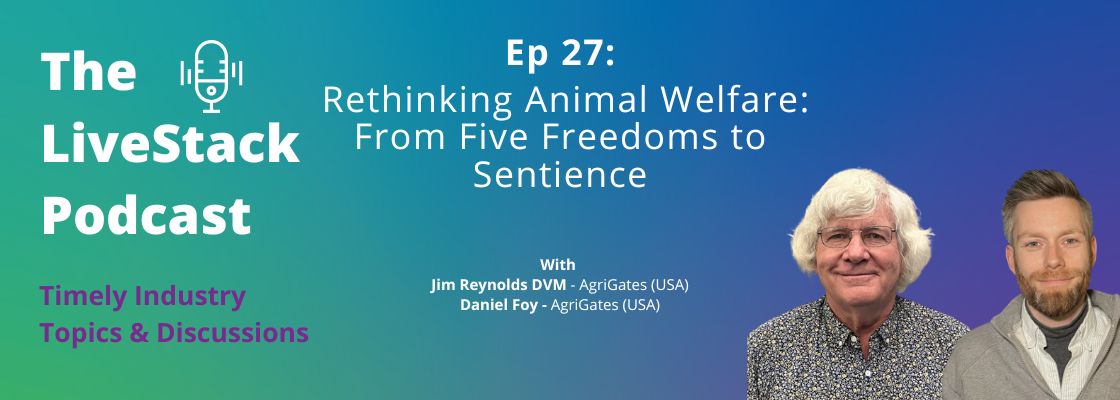In this episode, Daniel Foy is joined by Dr. Jim Reynolds for a deep dive into the evolving understanding of animal welfare. The conversation starts with Jim’s recent trip to Africa, where he reflects on the profound respect he observed for animals and ecosystems, setting the tone for a discussion about the historical, ethical, and scientific shifts in animal welfare.
The discussion centers around the 1965 Brambell Report, which laid the groundwork for the now-classic Five Freedoms of animal welfare. These freedoms, initially designed to frame the physical and mental needs of animals, are unpacked in the context of changing societal values and emerging science on animal consciousness. Jim explains how the language used then was intentionally broad to foster social change without triggering immediate backlash, and how the term “freedoms” subtly stood in for “rights.”
The episode progresses to explore sentience as the cornerstone of modern welfare thinking: animals as beings with emotions, expectations, and inner lives. Jim and Daniel trace this paradigm shift through philosophy, neuroscience, and practical farming, highlighting how pain, fear, and contentment are not just physical responses but deeply emotional states.
As the conversation turns to the future, Daniel and Jim emphasize the urgent need for better measurement tools in animal welfare, especially as farms move toward precision livestock systems. They call for metrics that go beyond visual audits and instead tap into the behavioral and emotional realities of animals, enabled by machine learning, AI, and sensor technology.
The episode closes on a hopeful note: with respect for animals, smarter tools, and a new definition of welfare based on positive experiences, animal agriculture can align better with ethics, sustainability, and productivity.
To learn more or share feedback, reach out at info@agrigates.io
Listen now on Apple Podcasts | Spotify

